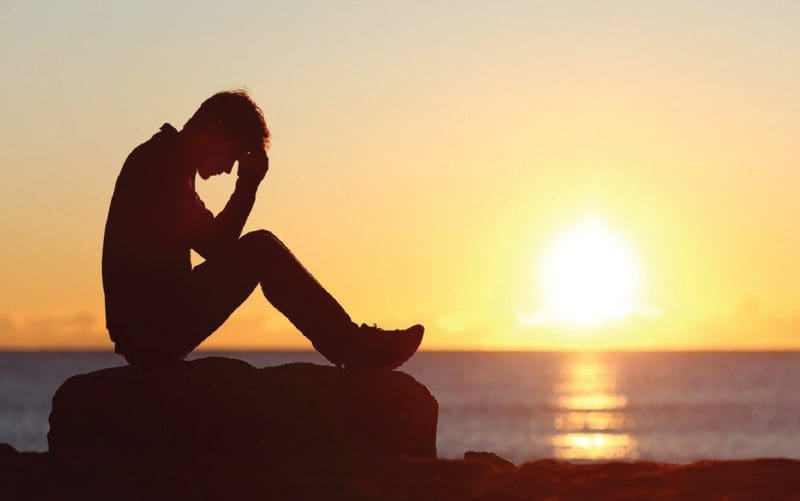
In a Dark Place: You’re Not Alone
Mental Health in Costa Rica: Even in one of the happiest countries on earth, dark places in the mind are still an unavoidable reality for many people. That is why mental health is no less relevant to Costa Rica’s local and expat population than it should be anywhere else in the world. When someone’s emotional or psychological well-being becomes worrisome, it need not be a lonely struggle. Below are Costa Rica national mental health resources numbers.
Costa Rica’s traditional
close-knit relationships
among family members and friends
are the mainstay of prevention.
As is the case in many other nations, depression and anxiety are the main reasons for seeking assistance from mental health professionals in Costa Rica. Both problems account for a significant percentage of patients seen by care providers in clinical practice and emergency departments.
“It depends on the severity of symptoms and how impaired the patient feels,” says Dr. Randall Quirós, a psychiatrist at CIMA Hospital San Josė and consultant to other clinical practices. “In cases of depression, suicidal thoughts or suicide attempts are the most common motives for patients visiting the ER, while panic attacks are an overwhelming symptom in patients with anxiety disorders.”
Costa Rica’s “happy” reputation belies an increase in suicide prevalence with serious implications. Over the past six decades, the suicide rate has increased by about 68 percent, translating to the current annual average of 365 suicides — one every day. Since 2005, suicide has been the third leading cause of death among teenagers in Costa Rica, in second place among Central American countries.
Notwithstanding genetic predisposition, Quirós attributes this trend to socioeconomic realities. “Suicides are more likely to happen in urban-marginal areas, where work and education opportunities are very limited. It’s sad but true that our social gap has been increasing continuously, finding more and more people hopeless and frustrated.”
The same is true of anxiety disorders, Quirós says. “Again, there’s an important biological element. But exposure to a high standard of living model can create unreasonable expectations, which trigger feelings of frustration and restlessness.”
Quirós, whose expertise includes a master’s degree in psychopharmacology and drug abuse treatment, says alcohol is still a leading preventable cause of illness and death in Costa Rica. It’s the top choice for experimental use among teens, with cannabis in second place.
Costa Rica’s traditional close-knit relationships among family members and friends are the mainstay of prevention, caring and support for anyone experiencing mental health problems. Help is available at regional medical clinics or hospitals throughout Costa Rica. National mental health resources include:
National Psychiatric Hospital in Pavas, San Jose
24/7 emergency services
Phone contact 2232-2155
ACEPS (Costa Rica Association for the Prevention of Suicide and Risk Behavior)
4081-9326 / 2250-1508
IAFA (Institute of Alcoholism and Pharmacodependence)
2224-6122
Cover Story – Costa Rica is the Happiest Country in the World… Why?
Costa Rican Army Abolished: One more reason for happiness?
Feature Article – Living longer in Costat Rica Blue Zone
Costa Rica Yoga and Wellness Retreats
Yoga Wisdom – Power of Yoga: Yamas and Niyamas
Yogapedia – Vrksasana: Tree Pose
Natural Medicine – CBD Oil: Nature’s Miracle Cure?
Mindfulness: Natural High: Benefits of Nature
Eat Well: Costa Rica Superfoods – Nutrient Dense Food
Costa Rica Medical Tourism
Costa Rica Dental Tourism: Veneers – Reason to Smile
Ecotourism in Costa Rica: Sustainable Tourism
Ecotourism Pioneer: Rafael Gallo – Ríos Tropicales
The Osa Peninsula
Ecotourist Road Trip: Sarapiquí
Ecolodges in Costa Rica
Caminos de Osa: Tourism that is helping Costa Ricans
CST Being Green Matters to Diamante Eco-Adventure Park
Grow Sustainably, Build & Live Sustainably in Costa Rica
Behind the Image: Photography as Ecotourism
Building Green and Prove it in Costa Rica
Costa Rica Sustainable Development: Ever Greener
Costa Rica’s indigenous Communities and Indigenous Tribes
